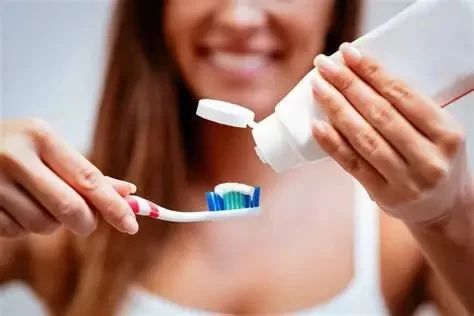
The Importance of Oral Hygiene in Everyday Life
Oral hygiene is not only about keeping your teeth white or your breath fresh—it plays a vital role in your overall health. In the United States, millions of adults face oral health problems such as gum disease, cavities, and tooth loss, many of which can be prevented with proper daily care. Brushing and flossing are more than just habits; they are preventive measures that protect against infections, systemic diseases, and costly dental treatments. A healthy smile reflects more than appearance; it is a window into your body’s well-being.
How Oral Health Impacts the Body
Studies have shown a clear link between oral health and systemic conditions such as heart disease, diabetes, and respiratory infections. For example, untreated gum disease can allow harmful bacteria to enter the bloodstream, leading to inflammation that affects the heart. People with diabetes are also more prone to oral infections, making daily dental hygiene a crucial part of managing their condition. By maintaining strong oral care routines, you are not only protecting your mouth but also supporting your immune system and cardiovascular health.
Common Problems Caused by Poor Oral Hygiene
Neglecting oral hygiene can lead to a range of issues beyond cavities. Gum disease, one of the most common results of poor dental care, can cause swollen, bleeding gums and eventually tooth loss if left untreated. Bad breath, or halitosis, is another consequence often overlooked but socially distressing. More severe cases can lead to infections such as abscesses that require emergency care. Each of these problems often starts small, which is why consistent oral hygiene is your best defense.
Daily Practices for Maintaining Healthy Teeth and Gums
Good oral hygiene is built on daily habits that anyone can follow. Dentists recommend brushing at least twice a day with fluoride toothpaste, flossing once daily to clean between the teeth, and rinsing with an antibacterial mouthwash. It is also important to replace your toothbrush every three months. Beyond home care, regular dental checkups every six months allow professionals to detect problems early and provide preventive treatments like cleanings and fluoride applications. These simple steps, if followed consistently, dramatically reduce the risk of serious dental issues.
The Emotional and Social Benefits of Good Oral Hygiene
Oral hygiene doesn’t just protect your health—it also impacts confidence and quality of life. Imagine walking into a job interview or a first date with the comfort of knowing your smile is clean and bright. Many Americans share stories of how improving their oral hygiene routines gave them a new sense of self-assurance. Whether it is a child proudly showing off cavity-free teeth at the dentist or an adult regaining confidence after gum treatment, oral hygiene has emotional rewards that go far beyond the dentist’s chair.
Real-Life Example: How Dental Care Changed One Family’s Health
A family in Texas once shared that multiple members suffered from recurring cavities and gum pain, which led to missed school days and high medical bills. After adopting stricter oral hygiene routines—daily flossing, improved brushing techniques, and regular visits to their local dental office—the family noticed dramatic improvements. Not only did their dental issues decline, but their overall health and happiness improved as well. Stories like these remind us that prevention truly is the key to long-term health.
Taking Proactive Steps for Lifelong Health
Prioritizing oral hygiene is one of the most effective ways to protect your body, save money, and live with confidence. By committing to daily care and regular checkups, you are making an investment in your future well-being. For trusted resources, professional advice, and service recommendations tailored to your needs, you can always turn to Family Dentistry Online for guidance on achieving and maintaining a healthy smile.







 Arise Dental - Your Local Peoria Dentist4.0 (205 review)
Arise Dental - Your Local Peoria Dentist4.0 (205 review) Light Dental Studios of University Place4.0 (279 review)
Light Dental Studios of University Place4.0 (279 review) Dentists of South Pasadena4.0 (124 review)
Dentists of South Pasadena4.0 (124 review) Aurora Dental Care4.0 (153 review)
Aurora Dental Care4.0 (153 review) ClearChoice Dental Implant Center4.0 (383 review)
ClearChoice Dental Implant Center4.0 (383 review) Kansas City Dentures and Implants5.0 (15 review)
Kansas City Dentures and Implants5.0 (15 review) The Importance of Oral Health Education During Pregnancy for a Healthy Pregnancy
The Importance of Oral Health Education During Pregnancy for a Healthy Pregnancy Best Tips for Brushing Your Teeth Properly for Healthy Gums: Essential Techniques for Oral Health
Best Tips for Brushing Your Teeth Properly for Healthy Gums: Essential Techniques for Oral Health Why Skipping Dental Checkups Can Lead to Bigger Oral Health Problems
Why Skipping Dental Checkups Can Lead to Bigger Oral Health Problems Advantages of Porcelain Dental Restorations
Advantages of Porcelain Dental Restorations How Can Diabetes Cause Tooth and Gum Problems? Preventing and Managing Oral Health Issues
How Can Diabetes Cause Tooth and Gum Problems? Preventing and Managing Oral Health Issues Healthy Habits for Promoting Good Oral Health and Hygiene: Tips for a Healthy Smile
Healthy Habits for Promoting Good Oral Health and Hygiene: Tips for a Healthy Smile